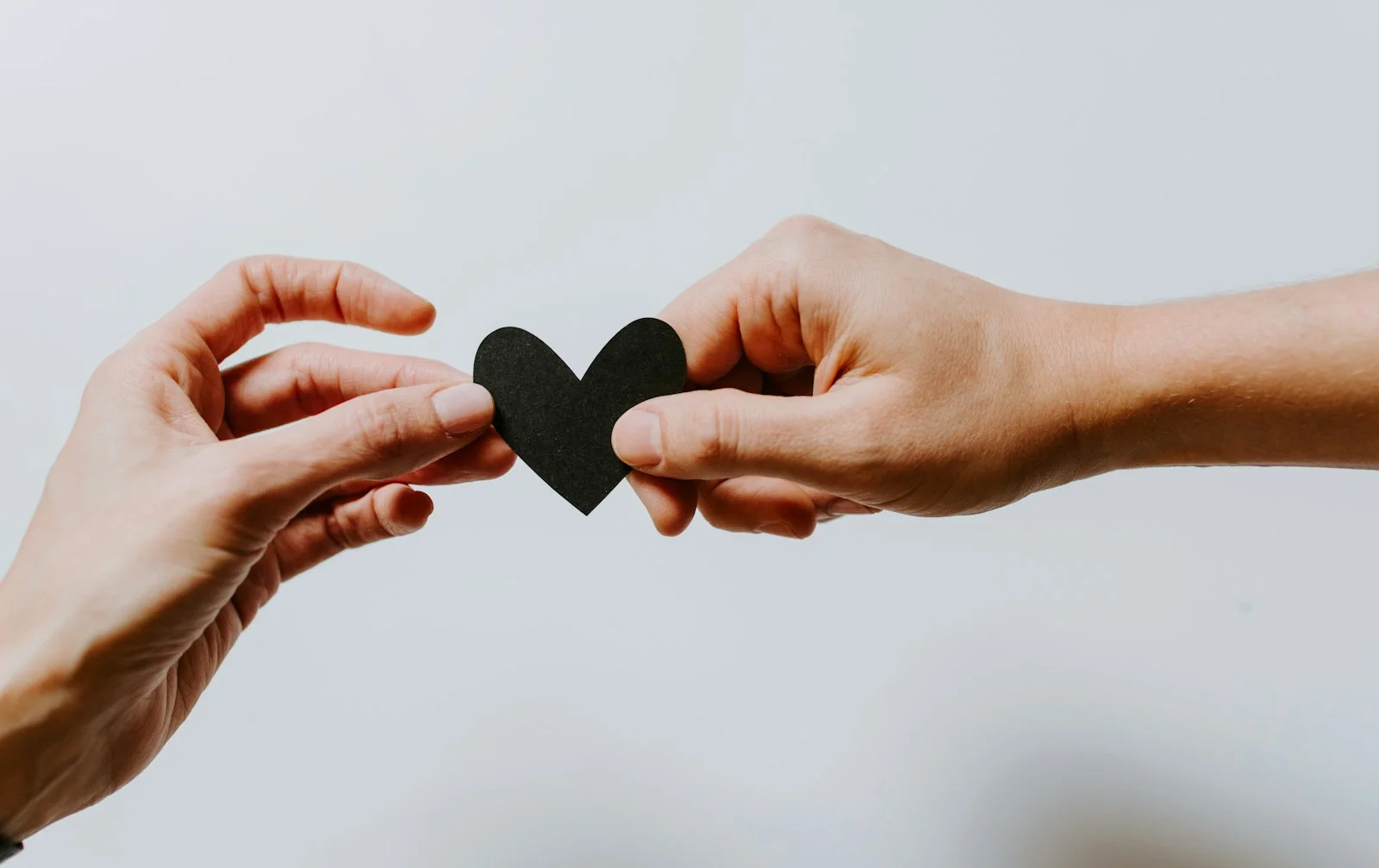
I need to tell you something that might be hard to hear, but it’s essential you understand this. What you think is love might actually be trauma bonding, and I can tell you from experience that the difference isn’t always obvious when you’re in it. If you’re constantly making excuses for someone’s behavior, feeling addicted to relationship chaos, or panicking when they threaten to leave, you’re not experiencing healthy love.
You Make Constant Excuses for Their Harmful Behavior
When you find yourself constantly defending someone who hurts you, you’ve crossed into dangerous territory. I can tell you from experience, this isn’t love—it’s trauma bonding, and it’s stealing your power.
You’ll catch yourself saying things like “He didn’t mean it, he was just stressed” or “She only yells because she cares so much.” I’ve never seen a healthy relationship where someone needs constant defending. You’re basically becoming their unpaid PR representative, spinning their cruelty into concern.
Here’s what’s really happening: your brain is protecting itself from the painful truth by creating these elaborate justifications. But every excuse you make weakens your ability to recognize genuine harm. Stop defending behavior you’d never tolerate from a stranger.
The constant mental chatter of rationalizing their actions fuels deeper psychological dependence, much like how negative self-talk reinforces destructive patterns in other areas of life.
You Feel Addicted to the Highs and Lows of the Relationship

One minute you’re on cloud nine because they brought you flowers, the next you’re crying in your car because they screamed at you for breathing too loud. This emotional whiplash isn’t love—it’s addiction, and I can tell you it’s one of trauma bonding’s cruelest tricks.
Your brain craves the next high like a drug, releasing dopamine when they’re kind after being cruel. The unpredictability makes those rare good moments feel euphoric, almost magical. You’ll find yourself chasing that feeling, desperate for their approval.
I’ve never seen healthy relationships operate on this cycle. Real love doesn’t require you to walk on eggshells, then feel grateful when someone treats you with basic respect. This addiction keeps you hooked, believing the next high will make everything worth it.
If you’re recognizing these patterns and need support to break free, consider reaching out to a life coaching professional who can help you develop healthier relationship patterns and rebuild your sense of self-worth.
You’re Walking on Eggshells to Avoid Their Anger
This emotional rollercoaster trains you to monitor every breath, every word, every movement around them. You’re constantly calculating what might trigger their explosive reactions, and I can tell you, this hypervigilance becomes exhausting.
Your survival instincts kick into overdrive as you develop these patterns:
- Censoring your thoughts before speaking to avoid “setting them off”
- Changing your behavior based on their mood when they walk in
- Apologizing for things that aren’t actually your fault
- Avoiding certain topics you know will trigger their rage
I’ve never seen healthy love require this level of careful navigation. Real partners don’t make you feel like you’re defusing bombs daily. When you’re trauma bonded, you mistake this constant tension for passion, but it’s actually fear disguised as devotion.
This chronic state of alertness often manifests as unexplained physical symptoms like headaches, muscle tension, and frequent illnesses as your body bears the burden of constant stress.
You Feel Panic When They Threaten to Leave
Although threats to leave should make you feel relieved in a toxic relationship, trauma bonding flips your natural response completely upside down. Instead, you panic. Your heart races, your stomach drops, and you’ll do anything to prevent them from walking away.
I can tell you this reaction isn’t love—it’s fear-based attachment. When someone threatens to abandon you after creating an environment where you depend on their approval, your nervous system triggers survival mode. You’re not fighting for the relationship because it’s healthy; you’re fighting because losing them feels like losing yourself.
Your brain’s ancient wiring treats the abandonment threat as a danger to your survival, even when logically you know the relationship is harmful.
I’ve never seen healthy relationships involve abandonment threats. Partners who genuinely care don’t weaponize leaving against you. They work through problems together, not hold the exit door over your head.
You Isolate Yourself From Friends and Family Who Express Concern

Another clear sign you’re trapped in trauma bonding appears when loved ones voice their concerns about your relationship, and your immediate response is to pull away from them entirely.
I can tell you this isolation isn’t accidental—it’s your nervous system protecting the bond at all costs. When friends say “this doesn’t look healthy,” you’ll find yourself making excuses or cutting contact completely.
Here’s what this defensive isolation looks like:
- You stop sharing relationship details with trusted friends
- You avoid family gatherings where questions might arise
- You dismiss concerned loved ones as “jealous” or “controlling”
- You choose your partner’s validation over longtime friendships
This withdrawal strips away your support network, leaving you more dependent on the very person causing harm. When you’re constantly seeking external validation from an unhealthy partner while rejecting input from caring friends and family, you’re essentially handing your power over to someone who doesn’t have your best interests at heart.
You Confuse Fear and Anxiety With Excitement and Passion
When your heart races every time your phone buzzes with their message, you might mistake that surge of adrenaline for passionate love—but I can tell you it’s actually your body’s alarm system going off.
I’ve never seen healthy relationships where you feel nauseous before seeing someone, where your stomach drops when they walk into a room, or where you mistake the knot in your chest for butterflies. That’s not romance—that’s fear wearing a disguise.
You’re confusing your nervous system’s stress response with excitement because trauma bonds hijack your body’s natural signals. This constant checking and anxiety over their responses mirrors the digital validation addiction that keeps people glued to social media, chasing dopamine hits from likes and comments. Real love feels calm, secure, steady. It doesn’t make you hypervigilant or leave you analyzing every text for hidden meanings. Stop romanticizing anxiety and start recognizing it for what it really is.
You Stay Despite Clear Red Flags and Dealbreakers

Your body’s screaming danger signals, but you’re still showing up, still making excuses, still convincing yourself that someone who treats you poorly is worth your time and energy.
I can tell you that healthy people walk away when someone crosses their boundaries. They don’t negotiate with disrespect or rationalize abuse. But trauma bonding keeps you trapped, making you override your instincts.
You’re staying despite:
- Consistent lying – They promise change but repeat harmful patterns
- Emotional manipulation – Guilt trips, silent treatment, or gaslighting become normal
- Disrespecting your boundaries – Your “no” means nothing to them
- Controlling behavior – They isolate you from friends, monitor activities, or dictate choices
This disconnection from your gut feelings mirrors how some people lose touch with their authentic selves by constantly seeking external validation instead of trusting their inner wisdom.
I’ve never seen trauma bonding without this pattern of ignored red flags.
You Feel Responsible for Fixing or Saving Them
You become obsessed with proving your worth through sacrifice. You’ll cancel plans to comfort them after their latest crisis, drain your savings for their emergencies, or endure verbal abuse because “they’re struggling.” I’ve never seen someone fix an abuser through unconditional love. That’s not your responsibility.
Real love doesn’t require you to save anyone. Healthy partners take accountability for their healing journey without making you their unpaid therapist. Breaking free from this cycle requires prioritizing self-love as a crucial journey, even when it feels uncomfortable or unfamiliar at first.
You Experience Physical Symptoms When Apart From Them
Panic attacks, nausea, and crushing chest pain often surface the moment you’re separated from your abuser. Your body doesn’t distinguish between healthy attachment and trauma bonding, so it responds to separation with genuine physical distress.
Your body can’t tell the difference between genuine love and trauma bonding—both trigger the same intense physical withdrawal symptoms.
I can tell you that trauma bonding hijacks your nervous system, creating withdrawal-like symptoms when you’re apart:
- Heart palpitations that make you feel like you’re having a heart attack
- Digestive issues including stomach cramps, loss of appetite, or constant nausea
- Sleep disruption with insomnia or nightmares about losing them
- Trembling or shaking that you can’t control or explain
These symptoms aren’t proof of love—they’re your body’s trauma response. I’ve never seen healthy relationships produce such intense physical withdrawal symptoms. When psychological stress manifests physically through unexplained physical symptoms, it’s your body demanding attention to what’s happening in your mental and emotional landscape.
You Rationalize Their Abuse as a Sign of How Much They Care
I’ve never seen healthy love require pain as evidence. You’ll find yourself saying things like, “If they didn’t care, they wouldn’t get so upset,” or “Their jealousy shows how much they need me.” This mental gymnastics protects you from facing reality, but it’s keeping you trapped in cycles that destroy your power. Building self-awareness means recognizing these rationalization patterns and examining the self-talk that keeps you accepting what you would never tolerate for someone you truly love.
Conclusion
You can’t love someone who consistently hurts you, and they can’t truly love you while causing harm. Trauma bonding isn’t love—it’s survival mode disguised as devotion. I can tell you from experience, breaking free takes courage, but you deserve relationships built on respect, not fear. Trust your gut when friends worry, and don’t ignore those red flags. Real love doesn’t require you to lose yourself in the process.



Leave a Reply